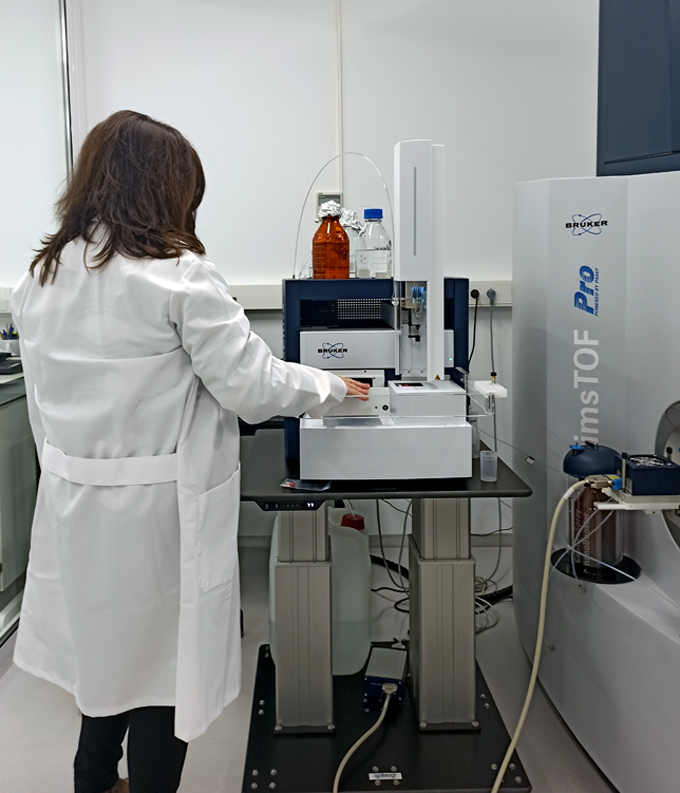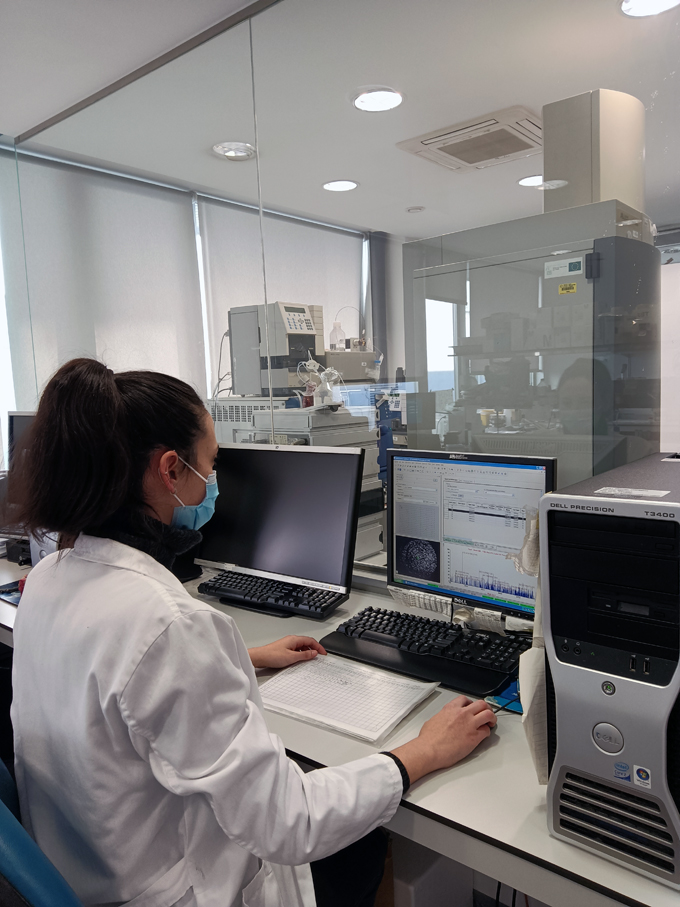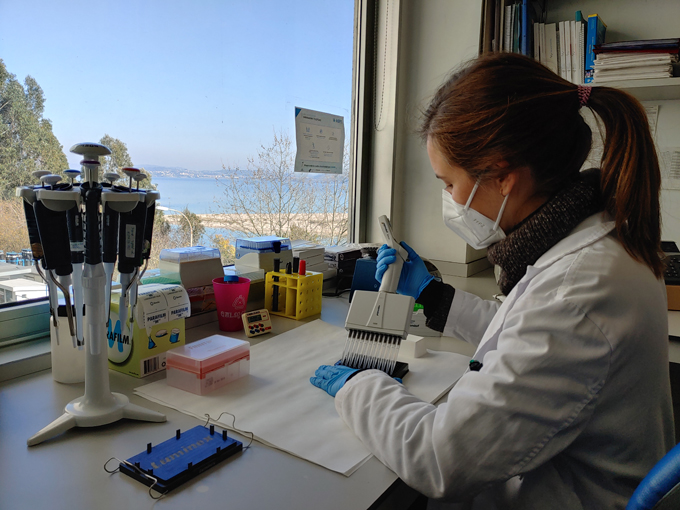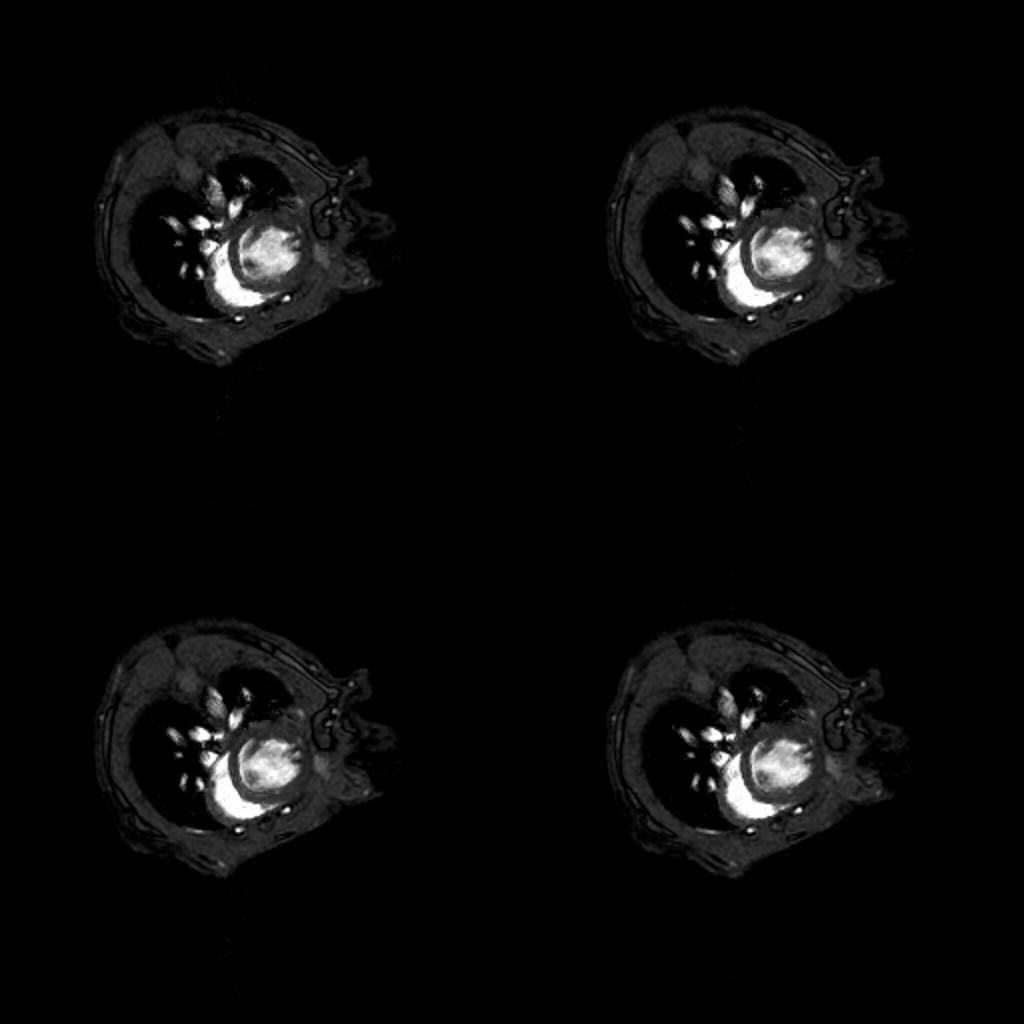U30-S03. Protein identification by mass spectrometry (MS) or MS/MS
Protein identification by mass spectrometry (MS) or MS/MS
Identification of proteins in biological samples, either by intact protein analysis (MALDI-TOF) or protein digestion followed by peptide mass fingerprinting (PMF, MS) or peptide fragmentation (MS/MS).
Customer benefits
Identification of proteins by mass spectrometry allows the characterization of biological samples, analysis of protein interactions (e.g. pull-down assays), peptide sequencing, etc. Identifications are performed with the highest specificity.
Target customer
Organizations and research groups interested in small or large-scale protein analysis.
Additional information


















